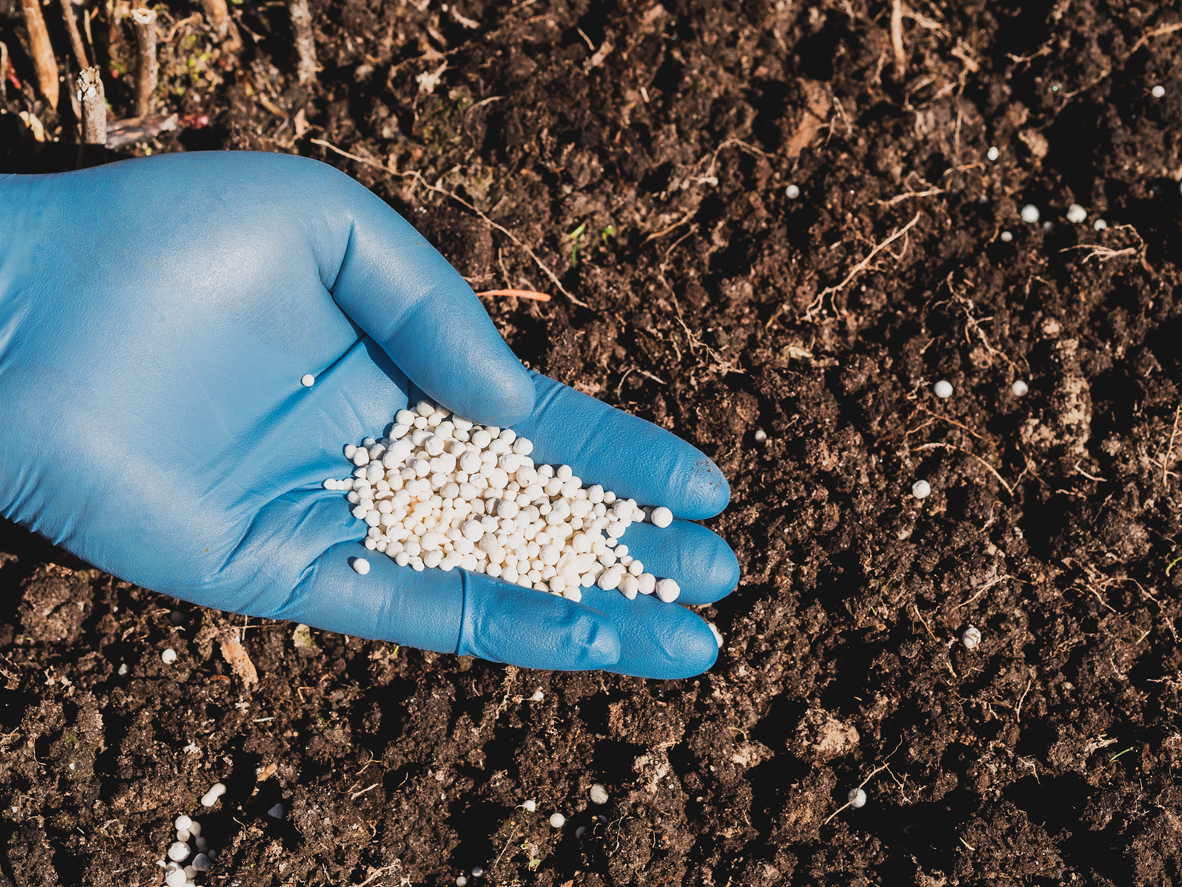How to Get the Best Nitrogenous Fertilizers in Kenya with Wigmore Trading
How to Get the Best Nitrogenous Fertilizers in Kenya with Wigmore Trading
Today, agriculture has become a juggernaut with new agro-innovations emerging to boost crop productivity. This is because the world population cannot be fed using traditional farming methods. With the current production methods, we are unable to feed more than seven billion people. Hence, there is a need for better and affordable technologies that can increase crop yield. Industrial greenhouses and hydroponics have proven to be highly effective in promoting plant growth by increasing availability of nutrients, humidity and warmth. When growing plants indoors or in an enclosed space, you need to understand what kinds of fertilizers will help them thrive. The key nutrients required by plants from fertilizers are nitrogen (N), phosphorus (P) and potassium (K). Apart from these three major macro nutrients, there are also secondary macronutrients such as Calcium (Ca), Sulfur (S), Magnesium (Mg), Iron(Fe), Copper(Cu) and Micronutrients like Zinc (Zn), manganese(Mn) and Sodium(Na). How do you get the right type of fertilizer? Read on…
What is a Nitrogenous Fertilizer?
Nitrogen is a macronutrient that is found in soil and is essential for the growth of plants. Nitrogen is a key component in amino acids, which are the building blocks of proteins. Hence, it is necessary for the development of leaves and stems, and for the production of seeds. Nitrogen, along with phosphorus and potassium, are considered as major nutrients for agriculture. They are required in greater quantities than any other elements. The availability of these nutrients in the soil also determines if it will be a good or a poor soil. Nitrogen is usually found in soils in the form of nitrate, ammonium or organic matter. Nitrogen-based fertilizers help to provide a steady and controlled release of nitrogen at the right time of the year.
Types of Nitrogenous Fertilizers
There are mainly two types of nitrogenous fertilizers – Synthetic fertilizers and Organic fertilizers. Organic fertilizers are made from natural ingredients like animal or plant matter, or a combination of both. Synthetic fertilizers are made from chemicals and are completely artificial. Synthetic fertilizers are further classified into Inorganic fertilizers and Organic fertilizers. Inorganic fertilizers are made using non-organic chemicals that are manufactured by a chemical process. Organic fertilizers are made from animal or plant products. – Inorganic Fertilizers: Inorganic fertilizers are manufactured from non-organic elements like ammonia, ammonium nitrate, urea, muriate of potash and sulphate of potash. These are the most commonly used fertilizers in the world. – Organic Fertilizers: Organic fertilizers are made from natural ingredients, like animal or plant matter. Some of the most commonly used organic fertilizers are fish, blood, bone and guano.
What is Dried Distillers Grains?
Dried Distillers Grains are another common type of nitrogenous fertilizers. DDGs are by-products of the process of making Ethanol by fermentation. The grains are made from corn, wheat or sorghum. DDGs are rich in protein and are commonly used as livestock feed. DDGs can be used to fertilize crops because they contain nitrogen and other essential plant nutrients. They also contain a small amount of phosphorus.
Dried Faecal Slurry
Faecal slurry is another nitrogenous fertilizer. It is also commonly called ‘manure’. Faecal Slurry is a combination of the liquid and solid excreta from domesticated animals such as cattle, sheep and goats, etc. Apart from Nitrogen, it also contains many other micronutrients and macronutrients that are required by plants. It can be used to fertilize crops and increase their yield significantly.
Why Are Nitrogenous Fertilizers Important?
Nitrogen-based fertilizers are necessary for the production of food and are used extensively in the agricultural sector. They are applied directly to soil to meet the demand for nitrates, which plants require for growth. They are important for increasing crop yield, improving soil fertility and reducing environmental pollution caused by over-application of synthetic fertilizers. Nitrogen-based fertilizers increase the crop yield by increasing the number of leaves and the size of the leaves. They are also responsible for increasing the number of seeds and fruits produced by the crops.
Conclusion
Nitrogenous fertilizers are important for increasing crop yield. They are manufactured in various forms, but all have one thing in common – they contain high levels of Nitrogen. There are two types of nitrogenous fertilizers – synthetic and organic. Organic fertilizers are made from natural ingredients while synthetic fertilizers are made from chemicals. Synthetic fertilizers are made from ammonia, ammonium nitrate, urea, muriate of potash and sulphate of potash. These are the most commonly used fertilizers in the world. Organic fertilizers are made from animal or plant matter. ” There are many benefits of using nitrogenous fertilizers, one of them being increased crop yield. The key nutrients required by plants from fertilizers are nitrogen, phosphorus and potassium. Besides these three major macro nutrients, there are also secondary macronutrients such as calcium, sulfur, magnesium, iron, copper, manganese and sodium. You can buy nitrogenous fertilizers from online stores like Wigmore Trading. It is important to choose the right type for your plants.








LEAVE A COMMENT
You must be logged in to post a comment.